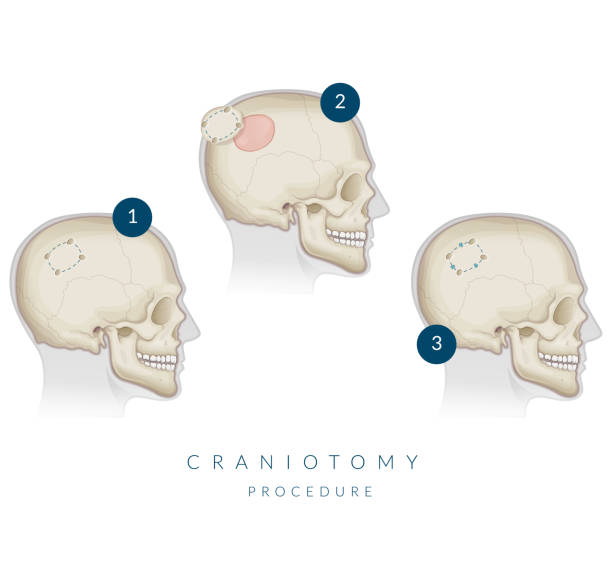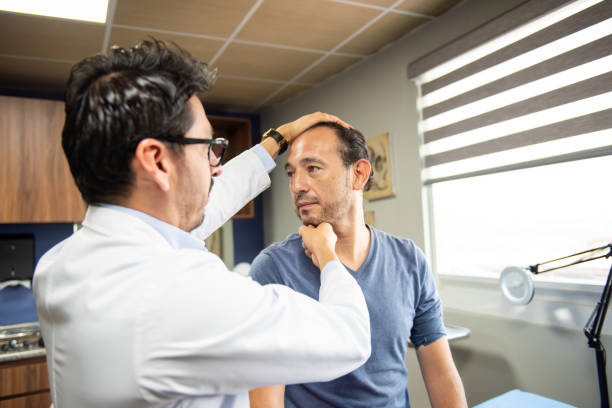
Craniotomy is a complex brain surgery that can bring great relief to patients suffering from tumors, trauma, or neurological conditions. But the recovery can be challenging. Side effects of craniotomy in the long term can differ from person to person depending upon the area of the brain affected, general health, and care after surgery.
Dr. Gurneet Singh Sawhney, an experienced neurosurgeon in Mumbai, says, “It is important for the patient and his/her family to understand the long-term side effects of craniotomy. Recovery is not merely keeping an eye on the post-operative symptoms for now but also the long-term impact on one’s quality of life.”
Curious about what happens during this complex brain surgery?
What Is a Craniotomy?
A craniotomy is a surgical procedure in which a section of the skull (bone flap) is temporarily removed to allow the surgeon access to the brain. It is performed to treat conditions like brain tumors, aneurysms, traumatic brain injuries, epilepsy, or infections.
Once the surgery is over, the bone flap is repositioned and fixed. Although the surgery can prove to be lifesaving, its effect on brain tissues and surrounding structures may result in long-term complications at times.
Let’s find out what happens in the long run
Common Long-Term Side Effects
Cognitive and Emotional Changes
- Memory loss
- Difficulty concentrating
- Slow processing speed
- Emotional fluctuations such as irritability, anxiety, or depression
Since different brain regions control specific functions, the side effects depend on the surgical site. For instance, surgery in the frontal lobe may affect reasoning and behavior, while temporal lobe surgery may influence memory or speech.
Motor and Sensory Impairments
- Weakness in limbs
- Numbness or tingling sensations
- Problems with balance or coordination
These effects often occur when surgery affects the motor cortex or pathways linked to movement. Rehabilitation therapies can help improve function over time.
Speech and Language Difficulties
Some patients may experience slurred speech, difficulty finding words, or challenges in understanding language. Speech therapy often plays a vital role in recovery.
Seizures
Post-craniotomy seizures are relatively common and may require long-term anticonvulsant medications. Regular follow-ups help monitor and adjust treatment as needed.
Headaches and Fatigue
Chronic headaches and persistent fatigue are reported by many patients. These symptoms can affect daily life but are usually manageable with proper care and medications.
Experiencing persistent symptoms after brain surgery? Schedule a consultation to discuss solutions and improve your recovery journey.
Smoothly recovery depends on which factors, let’s find out
Factors That Influence Recovery
The recovery process after craniotomy is unique for each individual and depends on various factors.
Age of the patient:
Younger patients often heal faster.
Overall health:
Pre-existing conditions like diabetes or hypertension can slow recovery.
Location of surgery
The brain region operated on directly influences the type and severity of side effects.
Extent of surgery:
Larger or more complex surgeries may have higher chances of complications.
Postoperative care:
Access to physiotherapy, speech therapy, and psychological support significantly improves outcomes.
What can be done to improve quality of life after surgery?
Managing and Reducing Side Effects
Recovery after a craniotomy is not just about healing the brain but also regaining independence and confidence.
Lifestyle Adjustments Adequate rest, balanced nutrition, and gradual reintegration into work and social life promote healing.
Need guidance on post-craniotomy care? Schedule a consultation to ensure safe and effective recovery.
Conclusion
Craniotomy is a critical procedure that can save lives, but the long-term side effects of craniotomy highlight the importance of ongoing care and support. With proper rehabilitation, timely medical interventions, and emotional support, many patients regain independence and lead meaningful lives. As Dr. Gurneet Singh Sawhney, a trusted neurosurgeon in Mumbai, emphasizes, long-term recovery is most successful when patients stay committed to follow-ups and a structured rehabilitation plan.
Frequently Asked Questions
1. Are long-term side effects of craniotomy permanent?
Not always. Many side effects improve with therapy and time, but some may persist depending on the surgical site and individual health.
2. Can craniotomy affect life expectancy?
When performed successfully, craniotomy itself does not shorten life expectancy. Outcomes depend more on the underlying condition being treated.
3. Is there a risk of seizures after craniotomy?
Yes, seizures are a possible long-term side effect of craniotomy, especially if the surgery was done to address brain trauma or a tumor. Medications can help manage this risk.
4. What is the role of family members in the recovery process?
Family support is crucial for physical, emotional, and adherence to rehabilitation, enhancing the recovery process.



